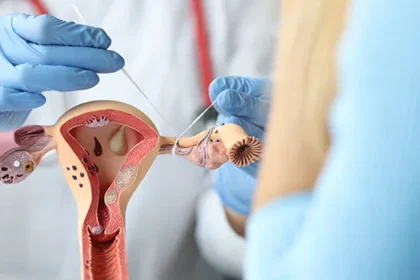Hip pain can interfere with everyday activities, from walking and exercising to sitting comfortably. Since hip joint pain often develops gradually, addressing it early is key to preventing further complications. With the right combination of medical evaluation, targeted treatment, and lifestyle adjustments, individuals can manage discomfort and improve their overall well-being.
Common Causes of Hip Pain
Hip pain results from a variety of underlying causes, ranging from injury to chronic conditions. Here are some causes of hip joint pain:
- Arthritis: Osteoarthritis and rheumatoid arthritis are primary culprits, causing inflammation and degeneration of the joint.
- Hip Fractures: Common in older adults, these fractures often result from falls or weakened bones due to osteoporosis.
- Bursitis: Irritation or inflammation of the bursae, small fluid-filled sacs that cushion the hip joint, often leads to pain and restricted movement.
- Tendinitis: Overuse or strain may cause inflammation of the tendons, often seen in physically active individuals.
- Muscle or Ligament Strains: Excessive stretching or tearing of soft tissues surrounding the hip joint can lead to acute pain.
- Hip Labral Tear: Damage to the cartilage that surrounds the joint socket may cause pain and instability.
- Pinched Nerves: Conditions such as sciatica can result in radiating pain originating from compressed or irritated nerves near the hip.
Understanding these potential sources of hip pain is key to accurately diagnosing the issue and pursuing effective treatment approaches.
Signs You Need Medical Help
While mild hip discomfort may resolve with rest, certain symptoms indicate the need for a professional medical evaluation. Early intervention prevents the condition from worsening and leads to effective outcomes. You should contemplate scheduling a medical consultation if you experience:
- Persistent pain that does not improve with rest or over-the-counter medication.
- Difficulty walking, standing for long periods, or bearing weight on the affected hip.
- A clicking or popping sensation in the hip joint during movement.
- Noticeable swelling or redness around the hip area.
- Pain that radiates from the hip to the thigh, groin, or lower back.
A healthcare provider can perform a thorough examination to identify the root cause of your hip pain and recommend an appropriate course of action.
Treatment Options for Hip Pain
Treatment for hip pain is tailored to the specific cause and severity of the condition. A medical professional will determine the most suitable approach after a comprehensive diagnosis. Initial treatments often focus on conservative methods to alleviate symptoms and promote healing. Physical therapy is frequently recommended to improve strength, flexibility, and range of motion. Anti-inflammatory medications can help reduce pain and swelling.
For targeted relief, a doctor may suggest steroid injections, which are administered directly into the hip joint to reduce inflammation. Restorative medicine therapies, such as platelet-rich plasma (PRP) injections, use the body’s own healing mechanisms to repair damaged tissue. In cases of chronic pain, advanced procedures like radiofrequency ablation may be used to disrupt nerve signals and provide extended relief.
Lifestyle Tips for Hip Health
Certain lifestyle adjustments support long-term hip health and reduce discomfort. Maintaining a healthy weight is key, as excess body weight places more stress on the hip joints. Practicing good posture while sitting and standing can also alleviate unnecessary strain. Incorporating low-impact exercises into your routine helps maintain joint mobility without causing further irritation. Make sure to warm up properly before physical activity and listen to your body to avoid overexertion.
Schedule Your Hip Pain Consultation
Managing hip pain effectively begins with understanding its cause and exploring your treatment options. By recognizing symptoms and seeking timely medical advice, you can find a path to relief and improved mobility. Lifestyle adjustments and targeted treatments work together to support your joint health. If you are experiencing persistent hip discomfort, a consultation with a specialist can provide clarity and a personalized care plan.









